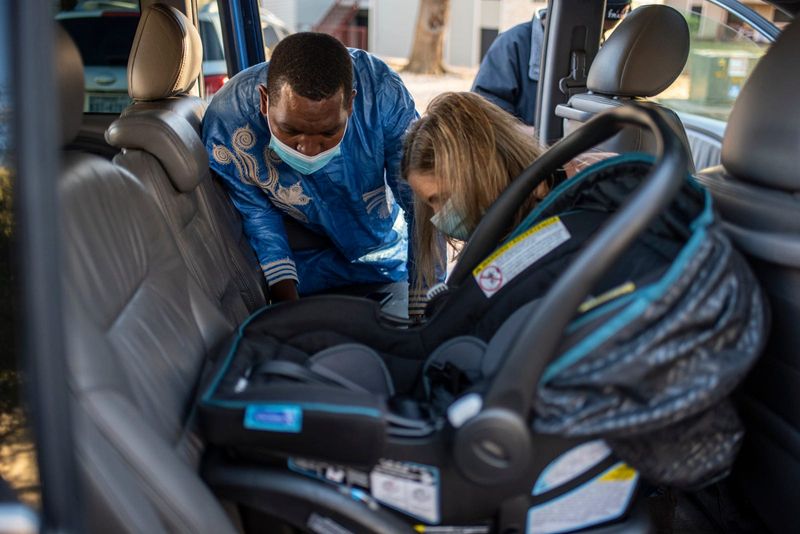With triple-digit temperatures baking the Lone Star State, summer in Texas isn’t just uncomfortable — it can be downright dangerous.
And with no relief in sight, the heat is here to stay, likely through September.

That means now’s the time to be extra cautious about what gets left behind in your car — including a few items you might not expect.
How hot does a car get on a 100-degree day?
The interior of a parked car can become dangerously hot very quickly — even if the windows are cracked.
Dark-colored interiors or cars parked in direct sunlight heat up even faster.
Never leave your children or pets in your car unattended
It’s never safe to leave children or pets unattended in a vehicle — not even for a few minutes, not even in your own driveway, and not even with the air conditioning running on remote start. In Texas, it’s also illegal to leave a child alone in a car for more than five minutes if they’re under the age of 7.
However, it’s even more dangerous on hot days, when the risk can turn deadly quickly, as interior temperatures can soar to life-threatening levels in just a matter of minutes.
Over the past 25 years, more than 1,010 children have died of heatstroke after they were left or were trapped in a hot car. In 2018 and 2019, there were a record number of hot car deaths, with 53 children dying each year, the most in at least 25 years, according to NoHeatStroke.org.
What else shouldn’t I leave in the car when its hot out?
Aerosol cans
Extreme temperatures can cause aerosol cans to “become unstable” and potentially break or explode, according to Capital One Auto Navigator.
Batteries
Keeping batteries in hot weather or direct sunlight poses a fire risk, according to the U.S. Fire Administration. Batteries that overheat can also leak or rupture.
Always follow the manufacturer’s directions for batteries.
Electronics
Like with batteries, you should always follow the manufacturer’s directions when it comes to electronics. Most, like Apple and Samsung, recommend that you avoid exposing products to extreme temperatures altogether.
Food and beverages
You shouldn’t leave your groceries in a hot car for more than two hours, or one hour when the temperature is above 90 degrees, Geico recommends. Not only can some items, such as canned beverages, cause a mess in extreme temperatures, but the FDA also states that foodborne illness-causing bacteria double in number every 20 minutes.
Lighters
The flammable fuel inside lighters could expand and breach their casing, posing a fire or explosion risk, according to Geico. The USB Lighter Company notes that disposable or cheaper lighters are also more susceptible to extreme temperature effects than other kinds.
Medications
Extreme temperatures can cause medications to become less effective or cause unintended side effects, Baylor College of Medicine notes. You should not take medications if they have been exposed to heat and have changed color, texture or odor.
If you’re unsure whether a medication has gone bad, you should call a pharmacist or healthcare provider. Most medication bottles also have temperature and expiration dates, according to Baylor College of Medicine.
Plastic bottles
Plastic water bottles are known to “leach” chemicals into water, a process driven by heat, USA TODAY reported. If you drink the water inside a plastic bottle that’s been left in a hot car, you could be ingesting some harmful chemicals.
Sunscreen
Sunscreen that’s exposed to high temperatures can shorten its shelf life, Geico said, citing the U.S. Centers for Disease Control and Prevention.
This article originally appeared on Austin American-Statesman: Sweltering Texas summers are here: 10 things you should never leave in a hot car or truck
Reporting by Brandi D. Addison, Austin American-Statesman / Austin American-Statesman
USA TODAY Network via Reuters Connect


